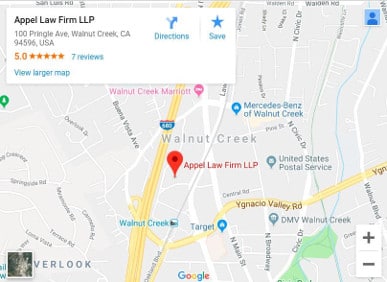Under California law, patients suffering from intractable pain have the right to receive sufficient medication that keeps their pain to tolerable levels. Yet many patients must needlessly endure overpowering pain when their physicians or care providers fail to provide adequate amounts of pain medication.
Elders may suffer from the under-treatment of pain to a disproportionate degree. Too often, doctors are reluctant to prescribe opiates to elders because the elder is already taking a variety of different medicines or because they don’t want to be accused of over-sedating their patient.
In addition, some doctors and caregivers misinterpret or overlook signs of pain in elders, thus causing them to be under-medicated. One clinical study of nursing home patients showed that nurses regularly underestimated pain level in the elders, mistakenly treating signs of physical pain as emotional distress.
The problem can be exacerbated by elders who do not or cannot discuss their pain. Some elderly patients don’t talk about their pain because they incorrectly assume it’s a natural side effect of aging. Elders with dementia or who have difficulty communicating often cannot properly express the extent of their pain and thus remain under-treated.
There’s no doubt that deciding when and how much to medicate an elder in pain is a difficult call on the part of the doctor. Nonetheless, doctors must meet a certain standard of care with respect to identifying and alleviating an elder’s chronic pain. If they fail to meet this standard, they may be liable for the elder’s pain and suffering.
Chronic Pain Affects the Elderly
Chronic, unrelieved pain can have profound impact on the life of your elderly loved one. Among other things, it can:
- increase the heart rate to dangerous levels, putting patients at risk of heart attack or stroke
- present adequate sleep, which may, in turn, contribute to fatigue, weakness, reduced mobility, and increased susceptibility to disease
- lead to depression, irritability, lack of concentration, and dependence on others.
How to Assess Whether an Elder is in Pain
- Ask regularly. Some elders may not speak out about the degree of pain that they’re in, thinking that they simply must bear it, or fearing that their complaints will go unheard. When assessing pain, ask them to rate it on a scale of 1-10, with 10 being an intolerable amount of pain. If they are in great pain, discuss with their doctor their pain management options.
- Watch facial and bodily expressions. Even if your elderly loved one cannot communicate the degree of their pain vocally, they may communicate that they’re in pain by wincing, clenching their teeth, furrowing their brow, rubbing the affected area, grasping onto furniture or other objects tightly. Restlessness, rocking or other signs of an inability to keep still may also indicate that they’re in pain.
- Listen for vocal complaints. Gasps, sighs, moans and cries may indicate severe pain. And pay close attention to times when they say “ouch” or “that hurts” or “that’s enough.” You might think it’s just a one-time event, but it may indicate chronic pain.
When to Talk to an Elder Abuse Attorney
If you believe your elderly loved one’s pain is intractable and not being adequately managed, speak to an elder law attorney immediately. A lawyer experienced in elder law and nursing home abuse can help your loved one receive the pain relief he or she needs, as quickly as possible.
Where appropriate, an attorney can also seek financial damages from the doctor or entity responsible for the pain and suffering of your loved one. No one should have to suffer unrelenting pain when something can be done about it.
The California Elder Abuse lawyers at the Appel Law Firm LLP are dedicated advocates of elderly victims who have suffered abuse in nursing homes, institutions and other long-term care facilities throughout California. Contact us for a free consultation or call 925-938-2000.
